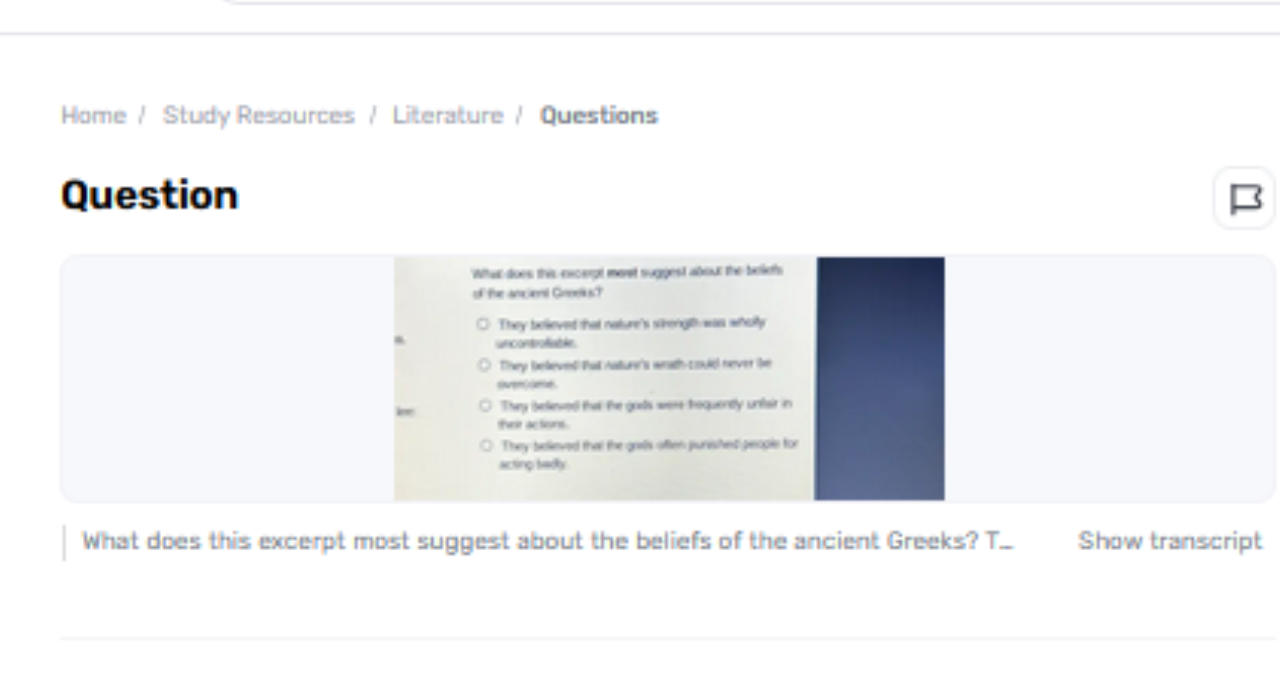Antiquated Greek civilization has had a significant effect on cutting-edge society, affecting our logic, legislative issues, craftsmanship, and writing. To get their worldview, looking at selections from their writing, mythology, and philosophical writings is vital. This exposition what does this excerpt most suggest about the beliefs of the ancient greeks? will analyze a specific portion to reveal the convictions of the old Greeks, covering subjects such as the gods' impact, the nature of destiny, human fabulousness, the part of the polis, the esteem of intelligence, and the significance of valor.
Convictions of the Old Greeks
The old Greeks held a wealthy embroidered artwork of convictions, counting the ubiquity of divine beings, the certainty of destiny, the interest of fabulousness (arete), the centrality of the polis, the esteem of intelligence, and the significance of valor. These convictions molded their worldview, impacting their writing, logic, and way of, life clearing out an enduring bequest on Western civilization.
The Gods' Impact
The antiquated Greeks accepted a pantheon of gods who played a fundamental part in lifestyle. The selection likely reflects the ubiquity of the divine beings in Greek society, appearing that divine creatures were seen as controllers of normal marvels, human predetermination, and societal standards. The divine beings were human, showing human feelings and behaviors, which made them relatable however changeable powers that might intercede in mortal undertakings. This conviction underscored the requirement for ceremonies, penances, and supplications to conciliate these gods and secure their favor or maintain a strategic distance from their fury.
The Nature of Destiny
Destiny, or "Moira," was another central conviction in old Greek culture. The portion might recommend that the Greeks saw life as a predetermined way, with destiny being an unchangeable constraint that indeed the divine beings may not change. This acknowledgment of destiny affected their viewpoint on life and passing, empowering a sense of lowliness and acquiescence. At the same time, it impelled people to endeavor for greatness inside the limits of their fate, knowing that their endeavors and excellencies seem to gain their honor and an enduring bequest.
Human Greatness and "Arete"
The concept of "arete," or greatness, was an essential esteem in old Greek society. The passage may emphasize the significance of accomplishing one's most noteworthy potential through bravery, insights, and expertise. Arete was frequently sought after in different areas, from athletic competitions and fighting to reasoning and expressions. This interest in brilliance was not fair for individual radiance but was seen as contributing to the more noteworthy great of the community and picking up the favor of the divine beings. The Greeks accepted that accomplishing arete was a way to rise above the impediments forced by destiny.
How to Utilize Gauth for Doing Homework: A 4-Step Direct
1. Sign Up and Profile Setup
Make an account on the Gauth site or app.
Total your profile with scholastic points of interest such as your review level, subjects, and favored mentoring times.
2. Explore Assets
Browse through Gauth instructional exercises, hone works out, and consider guides.
Bookmark and spare assets pertinent to your homework and ponder needs for simple get-to.
3. Schedule Mentoring Sessions
Discover and book mentoring sessions with subject specialists.
Select helpful times and get ready questions or themes you would like to offer assistance with sometime recently during the session.
4. Engage and Survey
Effectively take part in mentoring sessions utilizing intelligent devices like whiteboards and chat capacities.
Survey recorded sessions and hone materials given by guides to strengthen learning and total your homework successfully.

Conclusion
The passage from antiquated Greek writing offers a window into the complex and multifaceted convictions of this persuasive civilization. From the ubiquity of the divine beings and the inescapability of destiny to the interest of human brilliance, the centrality of the polis, the esteem of intelligence, and the significance of courage, these convictions collectively molded the Greek worldview. Understanding these concepts provides valuable insights into the establishment of Western thought and the persevering bequest of antiquated Greek culture.


